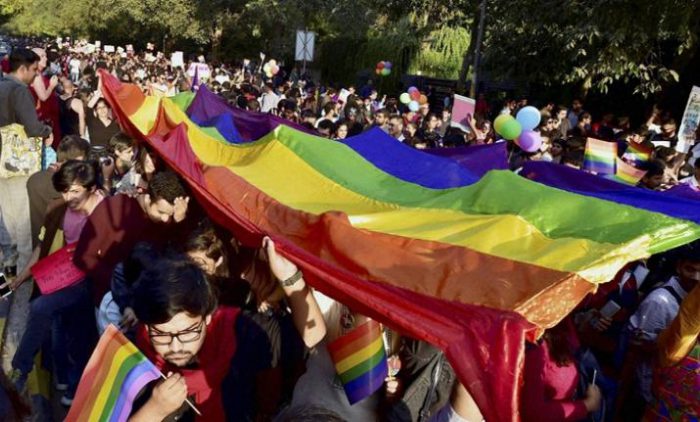
File Picture
In a massive verdict LGBTQ rights, a five-judge bench of the Supreme Court in an unanimous verdict decriminalised Section 377 of the Indian Penal Code that makes same-sex relations or gay sex, even if consensual, a punishable offence. In other words, homosexuality is no longer a criminal offence in India.
Chief Justice Dipak Misra read out the verdict on behalf of himself and Justice AM Khanwilkar. Misra spoke about the importance of individual identity with dignity, individual autonomy and equality for all without discrimination are cardinal corners of our constitution. The court ruled that consensual sex between adults in private is not an offence.
The CJI says LGBTQ community has the same fundamental rights as a citizen. “Prejudice and social stigma still affects a certain section of society. Progressive and inclusive realisation must embrace all. Heterogeneous fibre of the society must be maintained. Constitutional morality can’t be equated with popular sentiments,” CJI Misra said
A five-judge constitution bench headed by Chief Justice Dipak Misra had reserved its verdict on July 17 after hearing various stakeholders for four days, including gay rights activists.
Besides the CJI, the bench also comprised Justices R F Nariman, A M Khanwilkar, D Y Chandrachud and Indu Malhotra.
The apex court had asserted that courts cannot wait for a “majoritarian government” to decide on enacting, amending or striking down a law if it violates fundamental rights.
In 2009, the Delhi High Court had ruled in favour of decriminalising section 377 – a decision which was overturned only to by a two-judge Supreme Court bench in 2013, in the Suresh Kumar Koushal versus Naz Foundation case.
It had made clear that it may not strike down the law completely and deal with it to the extent it relates to consensual acts between two adults.
“If Section 377 of the IPC goes away entirely, there will be anarchy. We are solely on consensual acts between man-man, man-woman. Consent is the fulcrum here. You cannot impose your sexual orientation on others without their consent,” the top court had said while allaying apprehensions of those opposed to the decriminalisation of the penal provision.
“We would not wait for the majoritarian government to enact, amend or not to enact any law to deal with violations of fundamental rights,” the bench had said while reserving its verdict.
Section 377 refers to ‘unnatural offences’ and says whoever voluntarily has carnal intercourse against the order of nature with any man, woman or animal, shall be punished with imprisonment for life, or with imprisonment of either description for a term which may extend to 10 years, and shall also be liable to pay a fine.
The Centre, which had initially sought adjournment for filing its response to the petitions, had later left to the wisdom of the court the issue of legality of the penal provision on the aspects of criminalising consensual unnatural sex between two consenting adults.
Film- maker Karan Johar tweeted his delight at the historic verdict
Historical judgment!!!! So proud today! Decriminalising homosexuality and abolishing #Section377 is a huge thumbs up for humanity and equal rights! The country gets its oxygen back! pic.twitter.com/ZOXwKmKDp5
— Karan Johar (@karanjohar) September 6, 2018


















